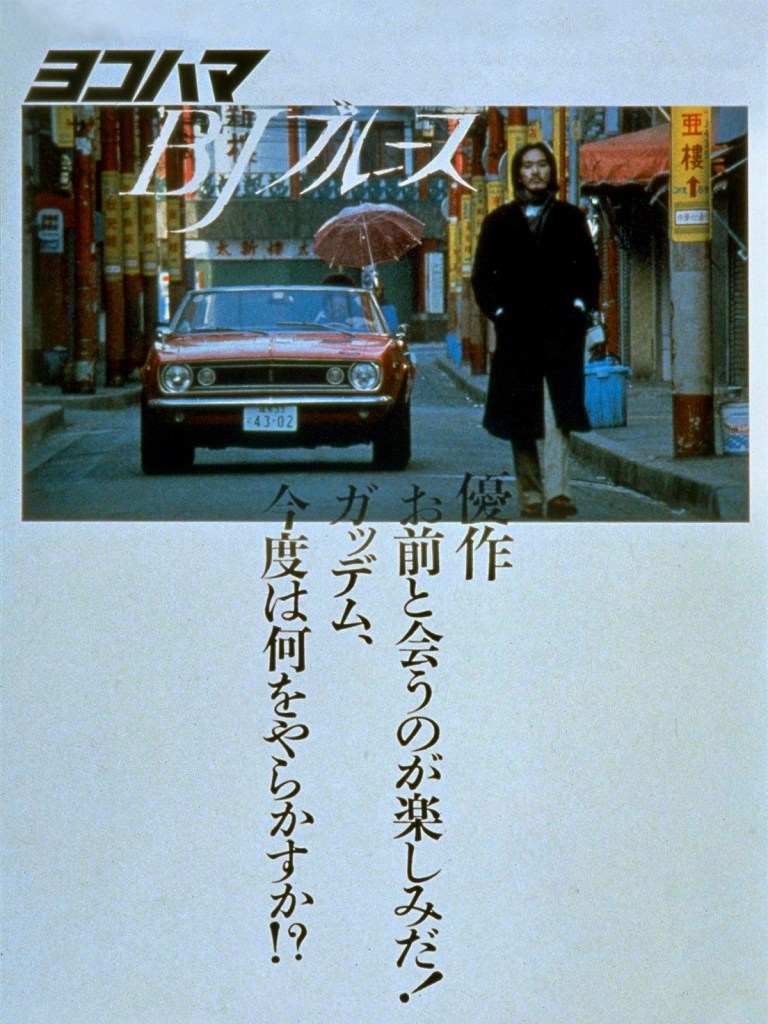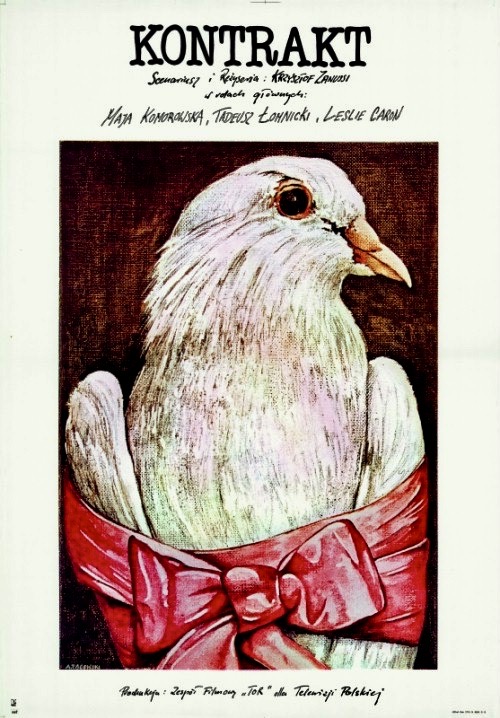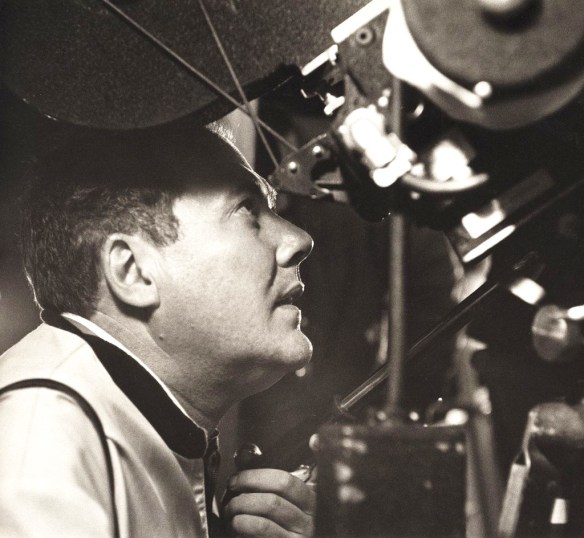BJ is not a typical private detective by anyone’s standards. He doesn’t own a car and walks or jogs everywhere. Nor does he carry a gun (although he might steal one from any thug that threatens him) or play the tough guy in the brutal manner of Mike Hammer (Ralph Meeker in Kiss Me Deadly). In fact, when he is first introduced in Yokohoma BJ Blues, directed by Eiichi Kudo, he seems like some eccentric drifter who occasionally moonlights as a singer in an after-hours club, where he works for tips. But working as a private detective is his main gig and this 1981 feature is certainly one of the most offbeat and low-key detective dramas you will probably ever see and, even for Japanese viewers, it could be an endurance test or a fascinating hybrid.
Continue readingTag Archives: Robert Altman
The Vows Not Taken
I remember the first time I heard about Polish director Krzysztof Zanussi. Friends of mine in Seattle were attendees at the annual Seattle International Film Festival and saw one of his films there in the early 1980s and raved about it. They became fans after that and tried to see everything he did that received distribution in their city. Unfortunately, outside of film festivals, few of his movies enjoyed wide (or any) distribution in the U.S. with the exception of a few art house dates in major cities like New York and Chicago. The first and only Zanussi film I saw was The Catamount Killing, which was released in 1974, but I only caught up with it on VHS in the mid-eighties. It is that rare anomaly in his career – a low-budget crime drama filmed in Burlington, Vermont with an English-speaking cast – and was not a success or even characteristic of his work with the possible exception of one of its themes – guilt and how it can destroy relationships. Only recently I have discovered some streaming sources for Zanussi’s work and my first foray into his past filmography is the 1980 made-for-Polish television satire Kontrakt (English title: The Contract), which was filmed in and around Warsaw and features an international cast of Polish, English and French actors including Leslie Caron in a key role.
Continue readingFashion in the Nuclear Age
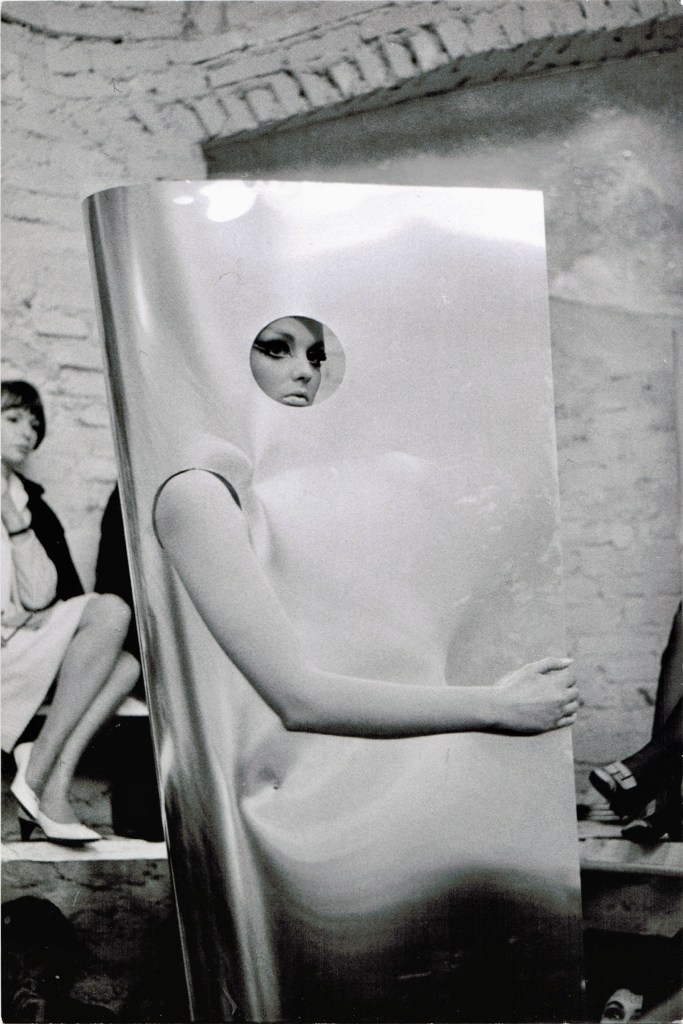
The fashion industry has always been fair game as a target for satirists but the majority of movies about the fashion world have mostly been glamorizations of it (Funny Face, The Devil Wore Prada) or serious validations of the business like the 1995 documentary Unzipped featuring designer Isaac Mizrahi or The September Issue (2007), which focuses on Anna Wintour, editor-in-chief of Vogue. It is much harder to come up with memorable satires on the subject although the supremely silly Zoolander (2001) is fun and Robert Altman’s Ready to Wear aka Pret-a-Porter (1994) is an amusing minor trifle. One of the few exceptions is Qui Etes-Vous, Polly Maggoo? (English title: Who Are You, Polly Maggoo?, 1966), the feature film debut of renowned photographer William Klein, which brilliantly skewers the profession while dazzling you with its visual inventiveness and giddy high spirits.
Continue readingClaude Goretta’s Garden Party
Most people who work for a company, regardless of its size, have probably attended an office party for the employees at a certain point. For some, the idea of socializing with co-workers outside of work is something to avoid if possible. For others, it is an opportunity to score points with the boss and maybe advance your career. Then there are employees who simply enjoy social gatherings where an open bar and free food is theirs for the taking. All of these personality types and more – the gossip, the prude, the party animal, etc. – are on display in The Invitation (French title: L’invitation, 1973), a comedy of manners by Swiss director Claude Goretta, in which the employees of a small firm gather at a country estate for an office party given by one of the most unlikely employees to host a soiree.
Continue readingThe Dirty Little Coward Roadshow
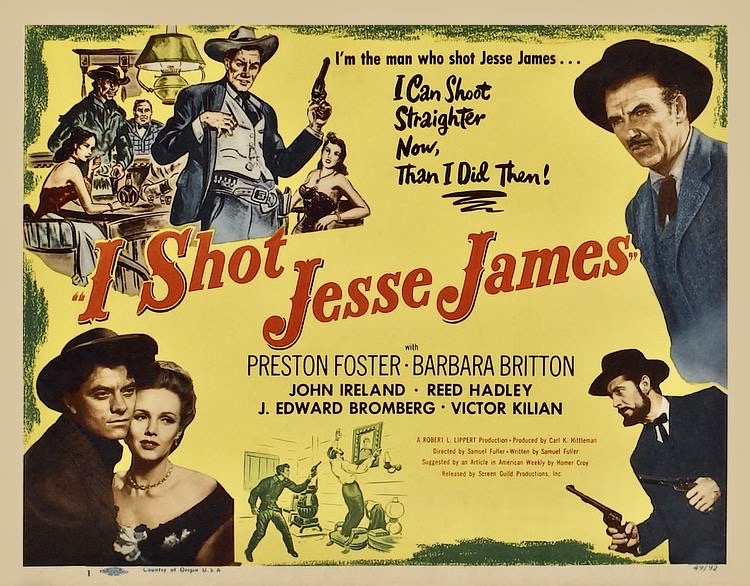
After recently rewatching I Shot Jesse James on DVD from Criterion’s Eclipse label, I couldn’t get a certain scene out of my head. As you may know, this 1949 film is Samuel Fuller’s directorial debut about Robert Ford, the “dirty little coward” who assassinated the frontier legend in 1882 and the scene that pops out occurs not long after Jesse (played by Reed Hadley) is dead and buried. Ford (John Ireland) begins performing re-enactments of the event on stages for money as he travels around capitalizing on his notoriety. At first, I thought this was just a fantasy from Fuller’s fevered, pulp fiction imagination but after doing some research it appears to be true. Robert Ford really did take his act on the road, billing it as “Outlaws of Missouri,” and, night after night before paying audiences, he would act out that fateful day when he shot Jesse James.
Continue readingPayback is a Bitch
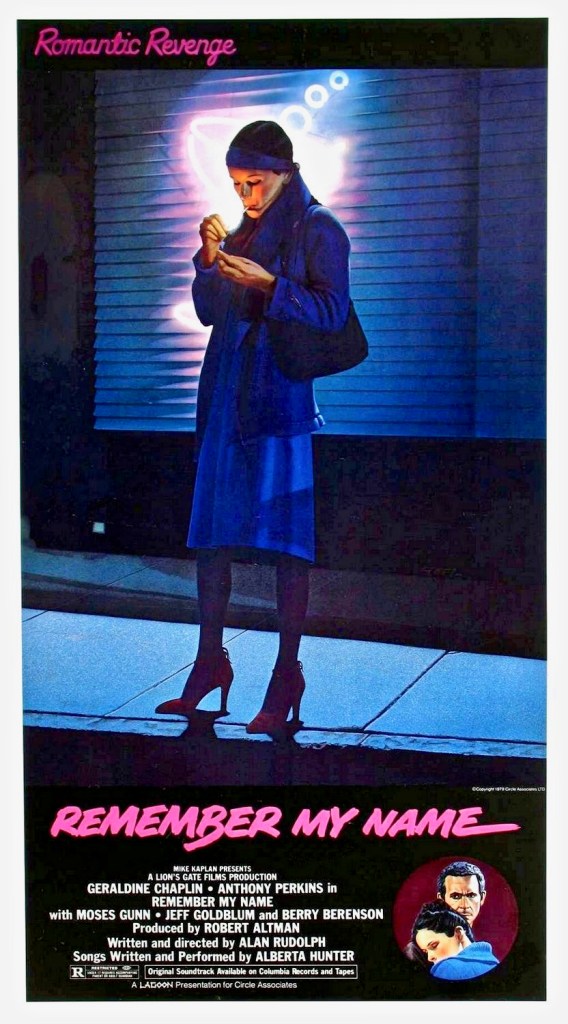 We’ve all heard the famous quote “Hell hath no fury like a woman scorned,” which came from the 1697 play The Mourning Bride by William Congreve, but what are the options for the discarded one? Shame the perpetrator in public? Internalize the rage? Become detached? Laugh it off? In Hollywood, the idea of the scorned woman bent on revenge is usually depicted more along the lines of Jessica Walter in Play Misty for Me (1971) and Glenn Close in Fatal Attraction (1987) but you really don’t have to wield a knife and go berserk to redeem your self-respect. Instead, you can be creative, unpredictable and non-threatening in appearance like Emily (Geraldine Chaplin), the protagonist of Alan Rudolph’s Remember My Name (1978). Continue reading
We’ve all heard the famous quote “Hell hath no fury like a woman scorned,” which came from the 1697 play The Mourning Bride by William Congreve, but what are the options for the discarded one? Shame the perpetrator in public? Internalize the rage? Become detached? Laugh it off? In Hollywood, the idea of the scorned woman bent on revenge is usually depicted more along the lines of Jessica Walter in Play Misty for Me (1971) and Glenn Close in Fatal Attraction (1987) but you really don’t have to wield a knife and go berserk to redeem your self-respect. Instead, you can be creative, unpredictable and non-threatening in appearance like Emily (Geraldine Chaplin), the protagonist of Alan Rudolph’s Remember My Name (1978). Continue reading
Reelin’ in the Years with Buck Henry
Buck Henry has had a remarkable career in the entertainment industry, one that has encompassed acting, screenwriting, directing, producing and even dubbing foreign language film imports. Not content to sit on his laurels, Henry at age 86 remains active in Hollywood where he is allegedly working on the screenplay to Get Smart 2. His previous assignment was writing the screenplay for The Humbling (2014), a comedy-drama directed by Barry Levinson starring Al Pacino and based on the novel by Philip Roth.
In April 2010, Buck Henry was a guest at the first annual TCM Classic Film Festival in Hollywood and was present at a retrospective screening of The Graduate to answer questions from Vanity Fair contributor Sam Kashner. I conducted the following interview with Henry about his career prior to that festival for Turner Classic Movies. Continue reading
Love is a Battlefield
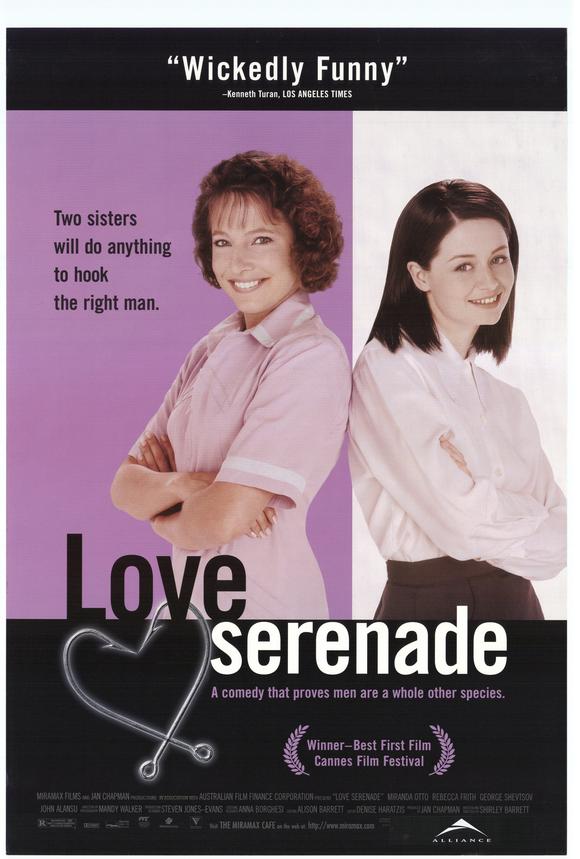 Is there something weird in the water in Australia..or maybe the air is different? All I know is that that culture has produced some of the quirkiest and most unusual films of any country beginning in the seventies with such movies as Peter Weir’s The Cars That Eat People (aka The Cars that Ate Paris, 1974), Stone (1974), and Thirst (1979), and continuing through the ensuing decades with such cult items as Jane Campion’s Sweetie (1989) and Rolf de Heer’s Bad Boy Bubby (1993). More surprising is that a few have gone on to become highly profitable hits in the U.S. such as Baz Luhrmann’s Strictly Ballroom (1992), Muriel’s Wedding (1994), and The Adventures of Priscilla, Queen of the Desert (1994). But one of my favorites – Love Serenade (1996) – didn’t strike box-office gold like the above three titles. It’s a strikingly original black comedy for those who fancy that often unappreciated mixture of the macabre and the comical which is rarely executed with this much wit and verve. Continue reading
Is there something weird in the water in Australia..or maybe the air is different? All I know is that that culture has produced some of the quirkiest and most unusual films of any country beginning in the seventies with such movies as Peter Weir’s The Cars That Eat People (aka The Cars that Ate Paris, 1974), Stone (1974), and Thirst (1979), and continuing through the ensuing decades with such cult items as Jane Campion’s Sweetie (1989) and Rolf de Heer’s Bad Boy Bubby (1993). More surprising is that a few have gone on to become highly profitable hits in the U.S. such as Baz Luhrmann’s Strictly Ballroom (1992), Muriel’s Wedding (1994), and The Adventures of Priscilla, Queen of the Desert (1994). But one of my favorites – Love Serenade (1996) – didn’t strike box-office gold like the above three titles. It’s a strikingly original black comedy for those who fancy that often unappreciated mixture of the macabre and the comical which is rarely executed with this much wit and verve. Continue reading
Robert Altman and the Cult of James Dean
While it is rarely shown in retrospectives of his work, Robert Altman’s The James Dean Story (1957) is easily one of the more offbeat and poetic examples of documentary filmmaking. Officially cited as his second feature (Altman’s first was The Delinquents, 1957), The James Dean Story was co-produced and co-directed with George W. George, a former writing partner of Altman’s, as a serious exploration of the young actor’s mystique and impact on the youth culture of the fifties. Continue reading
Nissan Truck Lust: Hands on a Hard Body
 “It’s a human drama thing.” That’s how Benny Perkins, one of the contestants in the “Hands on a Hard Body” contest, describes this unusual endurance contest in Longview, Texas which was once an annual event that officially began in 1992. I first became aware of S.R. Bindler’s enthralling, hilarious and often moving 1997 documentary of the event during a visit to New York City in 1998. Scanning the film section of The Village Voice for showings of movies unlikely to come to Atlanta, the title Hands on a Hard Body caught my eye and sounded like a softcore exploitation film, possibly set during Spring Break in Fort Lauderdale. Continue reading
“It’s a human drama thing.” That’s how Benny Perkins, one of the contestants in the “Hands on a Hard Body” contest, describes this unusual endurance contest in Longview, Texas which was once an annual event that officially began in 1992. I first became aware of S.R. Bindler’s enthralling, hilarious and often moving 1997 documentary of the event during a visit to New York City in 1998. Scanning the film section of The Village Voice for showings of movies unlikely to come to Atlanta, the title Hands on a Hard Body caught my eye and sounded like a softcore exploitation film, possibly set during Spring Break in Fort Lauderdale. Continue reading

